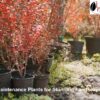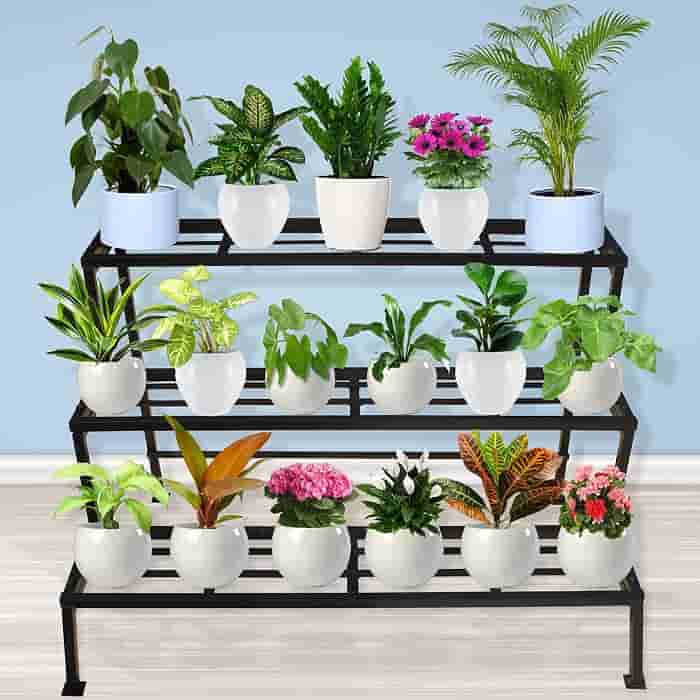Indoor gardening can be such a very rewarding hobby. You can have a feel of nature inside your house. No matter how large your place is, or even just a small apartment, indoor plants will certainly add some goodness to your home. However, indoor plants require a little knowledge and care for them to keep going on. So, here are some of the tips that we’d like to share with you for healthy and happy indoor plants.
Choose the Right Plants
First, choose plants that grow well indoors. All plants are not meant to grow in doors. Find a plant that does well in low light and tolerates indoor temperatures. Examples include snake plants, pothos, and peace lilies. They also require little maintenance, so they’re excellent for a beginner.
Additionally, you can also find plants for home decor in indore at local nurseries. They not only beautify and freshen your living area but also make the air cleaner, hence, healthier.
Light Requirements
One of the most significant factors for indoor plants is light. Most of them require bright, indirect light to grow. There are some plants also, though, that require a more direct sun exposure to grow, like some succulents and cacti. Understand what the needs of your plants are for light.
Keep the plants near the window that gets plenty of sunshine. However, be cautious not to place plants directly under sunlight for too long as this could burn them. Although, when your home does not have enough natural light, use artificial grow lights.
Watering Wisely
Some common mistakes in indoor gardening are watering. Plants need water; however, they don’t need to be watered all the time. One would start by checking the moisture level of the soil before starting to water. Stick a finger into the soil and observe if it is dry or not. If it’s dry, then it’s time to water your plant.
Ensure that the pot has well-draining holes. Such will help prevent water gathering at the bottom, which easily causes root rot. The other thing is that some plants need more water or less. For instance, succulent plants require less while leafy plants may take more.
Humidity and Temperature
While house plants prefer humid circumstances, in cases where your house is extremely dry, especially during winter, a humidifier comes in handy. Use a tray with water near your plant to increase its humidity. Therefore, it will help your plants look healthy and vibrant.
The next key variable is temperature, which most plants need. However, for most indoor plants, their ideal temperature falls between 60°F and 75°F or 15°C and 24°C. Usually, avoid drafts, heaters, or air conditioners because sudden temperature changes might stress your plants.
Proper Fertilization
Plants require nutrients to be healthy and strong. Indoor plants do not need as much fertilizer as the outdoor plants. However, they need a feed now and then. It is advisable to use balanced water-soluble fertilizers every now and then during the growth period. During winter, most indoor plants go into the dormancy period and less fertilizers are needed.
When fertilizing, be sure to follow the recommended amount on the label. Over-fertilizing can harm your plants and cause them to burn.
Pruning and Cleaning
Pruning helps keep your plants in good shape. Remove any dead or yellowing leaves to encourage new growth, and some plants, such as spider plants, even produce baby offshoots which you can remove and propagate. Pruning prevents your plants from becoming leggy.
Additionally, cleaning your plants often is important. Dust might be accumulated on the leaves of a plant, which blocks the sunlight and reduces photosynthesis. Gently wipe off the leaves with a damp cloth to keep them clean and shiny. This also keeps the pests from hiding in the dust.
Choosing Seasonal Plants
Seasonal plants in Indore can add fresh colors and beauty to your indoor garden. These plants are mostly easy to grow and adapt to changing weather. For example, you can grow seasonal plants during the monsoon season to enjoy increased humidity.
Moreover, select plants that would be suitable for the current season and climate in your locality. One of the best places to find these plants is at local nurseries. They can also provide expert advice on their care and maintenance.
Pest Control
Pests are a common problem among indoor gardeners. The infestation can be by small insects such as aphids and mealybugs. You should inspect your plants frequently for signs of pests. Therefore, remove the pests by using a cotton swab that you have dipped in rubbing alcohol and gently wiping out the affected areas.
Alternatively, you can use natural pest control methods by making use of neem oil. This is safe and effective for keeping your plants free from insects. Keep your indoor space clean to avoid attracting pests.
Conclusion
Indoor gardening is indeed a relaxing and fulfilling hobby. Choosing the appropriate plants, giving them enough light, water, and nutrients can ensure that your indoor garden thrives. There’s also a need for pruning, cleaning, and pest control to keep plants healthy.If you want the best plant nursery in Indore, look to local nurseries, which offer a wide selection of indoor plants.
Furthermore, you may also opt for online indoor plants in Indore in case you prefer shopping at home. Remember, after the right care, the beauty of your indoor plants will add joy to your house. Happy gardening!










Recent Comments